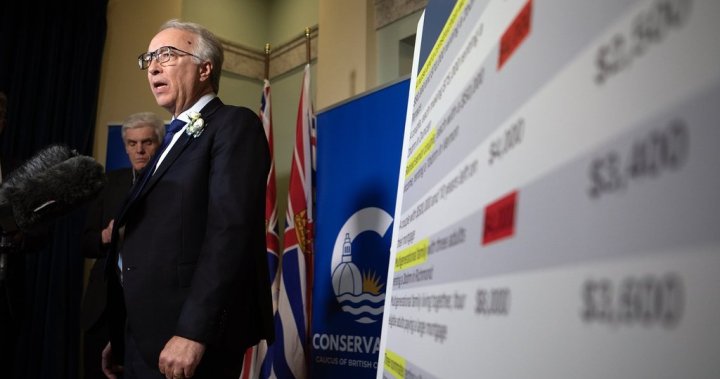The political landscape in British Columbia is heating up, and it’s not just due to summer temperatures. Conservative Party leader John Rustad finds himself navigating treacherous political waters as an unprecedented months-long leadership review threatens to upend his position at a critical juncture for the party.
“This is going to be a hot and uncomfortable summer for Rustad,” remarked political analyst Martyn Brown, who formerly served as chief of staff to ex-BC Liberal premier Gordon Campbell. “He’s basically hanging on by his fingernails.”
The extended review process, which began in May and stretches until late August, comes at a particularly vulnerable moment for the BC Conservatives. Recent polling has positioned them as potential frontrunners in the upcoming provincial election, scheduled for October 19, with some surveys showing them outpacing the governing NDP.
Despite this promising electoral position, internal fractures have emerged within the party. Multiple sources within Conservative circles have confirmed to CO24 Politics that dissatisfaction with Rustad’s leadership style has been brewing for months, with complaints focusing on his decision-making approach and communication strategy.
“The timing couldn’t be worse,” said Dr. Hamish Telford, a political science professor at the University of the Fraser Valley. “Leadership reviews typically happen after electoral defeats, not months before a potentially winnable election. This suggests serious internal governance issues that voters might find concerning.”
The unusual timeline of the review has raised eyebrows across BC’s political landscape. While most parties conduct swift leadership reviews following elections, the BC Conservatives have opted for a drawn-out process during what should be a critical pre-election preparation period.
Party president Aisha Estey defended the timeline in a statement to CO24 News, saying: “Our constitution mandates a leadership review two years after a leader’s selection. This process respects our democratic principles while allowing us to continue preparing for the election.”
However, leaked internal communications suggest the extended timeline may have been deliberately designed to create uncertainty around Rustad’s leadership. One senior party member, speaking on condition of anonymity, told CO24: “There are factions who believe a different leader could better capitalize on our current polling position. This review keeps that option open right up until the campaign begins.”
Rustad, who joined the Conservatives in 2022 after being expelled from the BC United caucus (formerly BC Liberals), has attempted to project confidence amid the uncertainty. “I’m focused on presenting British Columbians with a clear alternative to the NDP,” he stated at a recent campaign event in Kelowna. “Internal party processes won’t distract us from that mission.”
Political observers note that the timing of the review creates practical campaign challenges. “How do you plan an election strategy when your leader might be replaced weeks before the campaign?” questioned former NDP strategist Bill Tieleman. “It hampers fundraising, candidate recruitment, and platform development at the most crucial moment.”
The party’s constitution requires a simple majority vote to trigger a leadership race. Members are casting ballots throughout the summer, with results to be announced August 28 – just seven weeks before election day.
This extended period of uncertainty comes as other opposition parties in BC are experiencing their own transitions. BC United, under leader Kevin Falcon, has seen its polling numbers decline, while the Green Party navigates under the new leadership of Sonia Furstenau.
For British Columbia voters watching this political drama unfold, a fundamental question emerges: can a party demonstrating such internal division effectively govern a province facing complex challenges in housing affordability, healthcare, and economic management?










